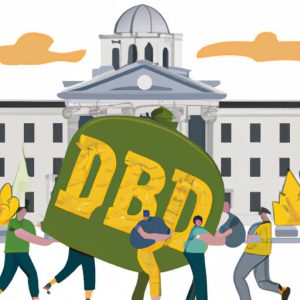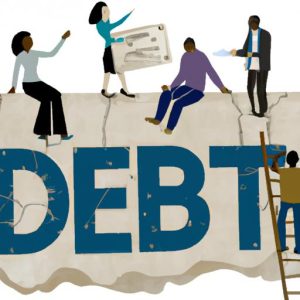Introduction
In today’s fast-paced world, it’s not uncommon to find ourselves drowning in credit card debt. But what exactly does it mean to pay off credit card debt? Simply put, it involves clearing the outstanding balances on your credit cards. However, the process goes beyond just settling the numbers; it’s about regaining control of your finances and paving the way towards a debt-free future.
The importance of paying off credit card debt cannot be overstated. By eliminating this financial burden, you can free yourself from the stress and anxiety that often accompany debt. Moreover, it allows you to save money on interest payments and improve your credit score, opening doors to better financial opportunities. So, let’s delve deeper into the world of credit card debt pay off and explore strategies to help you achieve financial freedom.
Strategies for Paying Off Credit Card Debt
A. Creating a Budget
One of the fundamental steps in paying off credit card debt is creating a detailed budget. By outlining your income and expenses, you can gain a clear understanding of where your money is going and identify areas where you can cut back. Allocating a specific amount towards debt repayment each month ensures that you stay on track and make consistent progress towards becoming debt-free.
B. Prioritizing Debts
When faced with multiple credit card debts, it’s essential to prioritize them based on factors such as interest rates and outstanding balances. The debt avalanche method involves tackling high-interest debts first, while the debt snowball method focuses on paying off smaller debts to build momentum. Choosing the right strategy for your situation can help you accelerate your debt pay off journey.
C. Using Balance Transfer Cards
Balance transfer cards can be a useful tool in reducing the interest you pay on your credit card debt. By transferring high-interest balances to a card with a lower or 0% introductory APR, you can save money on interest and pay off your debt more efficiently. However, it’s crucial to read the fine print, understand any transfer fees, and make timely payments to fully benefit from this strategy.
D. Negotiating with Creditors
Don’t hesitate to reach out to your creditors to discuss potential options for debt repayment. Many creditors are willing to work with you to create a more manageable repayment plan, such as lowering interest rates or waiving fees. By communicating openly and proactively, you may be able to negotiate more favorable terms that ease the burden of credit card debt.
Benefits of Paying Off Credit Card Debt
A. Improving Credit Score
Paying off your credit card debt can significantly impact your credit score in a positive way. High levels of credit card debt can harm your credit utilization ratio, a key factor in determining your credit score. By reducing or eliminating your credit card debt, you can lower your credit utilization ratio, which can lead to an increase in your credit score over time. This improved credit score can benefit you in various aspects of your financial life, from obtaining better loan terms to lower insurance premiums.
B. Saving Money on Interest Payments
One of the immediate benefits of paying off credit card debt is the reduction in interest payments. Credit card interest rates can be notoriously high, leading to substantial amounts of money spent on interest over time. By paying off your credit card debt, you can save yourself from these unnecessary interest charges, allowing you to allocate those funds towards more productive endeavors, such as saving for the future or investing in opportunities that can yield higher returns.
C. Achieving Financial Freedom
Ultimately, paying off your credit card debt can pave the way to achieving financial freedom. Being debt-free provides a sense of security and peace of mind, knowing that you are not beholden to creditors and high-interest payments. It opens up possibilities for you to focus on building wealth, pursuing your financial goals, and living a life free from the constraints of debt. By taking control of your credit card debt and paying it off, you can embark on a journey towards a brighter and more financially secure future.
Conclusion
As we wrap up our journey into the realm of credit card debt pay off, it’s essential to remember that taking control of your finances is a powerful step towards a brighter financial future. By implementing the strategies discussed in this article, such as creating a budget, prioritizing debts, and seeking help when needed, you can pave the way towards financial freedom.
Remember, paying off credit card debt is not just about settling balances; it’s about reclaiming your peace of mind and building a solid foundation for a more secure financial life. So, take charge of your financial well-being today and embark on the path towards a debt-free future. Your journey towards financial freedom starts now.


